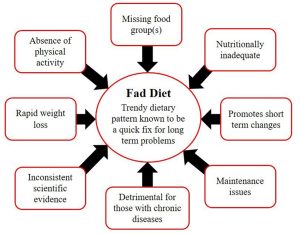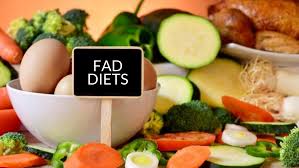Fad diets have been around for decades, promising quick weight loss and a healthier lifestyle. With social media amplifying trends, Gen Z is often bombarded with the latest diet crazes. But are these diets effective, or could they be harmful? Let’s dive deeper into the world of fad diets to understand what they entail, their allure, and their impact on health.
What Are Fad Diets?
Fad diets are eating plans that gain rapid popularity, usually due to promises of fast weight loss or other health benefits. Examples include the Keto diet, Paleo diet, Atkins diet, and more recently, the Carnivore and Juice Cleanse diets. These diets often eliminate entire food groups or significantly reduce calorie intake, which can be appealing for those looking for immediate results.
Join our WhatsApp ChannelIn a world of instant gratification, it’s no wonder fad diets are appealing. They promise rapid weight loss without the need for long-term lifestyle changes. For Gen Z, who often seek quick solutions and are heavily influenced by social media, the lure of these diets can be strong. Celebrities and influencers frequently endorse them, adding to their appeal. The visual transformation stories and before-and-after photos can be incredibly persuasive, making these diets seem like a magical solution to weight issues.

The Science Behind Fad Diets
While some fad diets may show initial results, they are often not sustainable. Here’s a closer look at the science behind some popular fad diets:
- Keto Diet: This diet works by forcing the body into a state of ketosis, where it burns fat for fuel instead of carbohydrates. While effective for short-term weight loss, it can lead to issues like kidney stones, nutrient deficiencies, and an increased risk of heart disease if followed long-term.
- Paleo Diet: By excluding grains, legumes, and dairy, this diet aims to mimic the eating habits of early humans. Although it encourages the consumption of whole foods, it can lead to deficiencies in calcium and vitamin D, essential for bone health.
- Atkins Diet: Similar to Keto, Atkins emphasizes low carb intake. However, the high protein and fat consumption can increase cholesterol levels and put strain on the kidneys over time.
- Juice Cleanses: While they might help in detoxifying the body, juice cleanses can result in muscle loss, fatigue, and nutrient deficiencies due to the lack of protein and fiber.
Carnivore Diet: This all-meat diet can lead to high cholesterol and lacks essential nutrients found in plant-based foods, such as fiber and vitamins.

















Follow Us